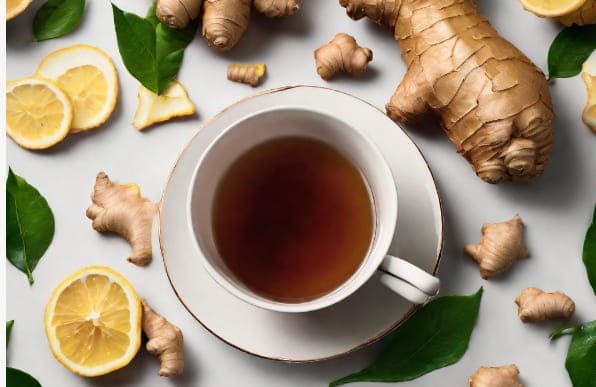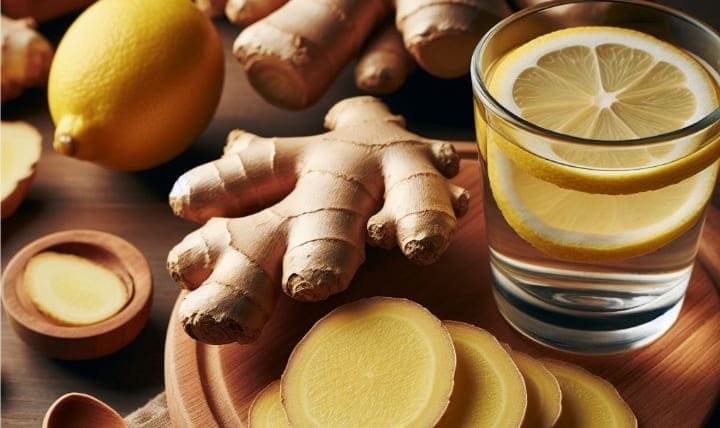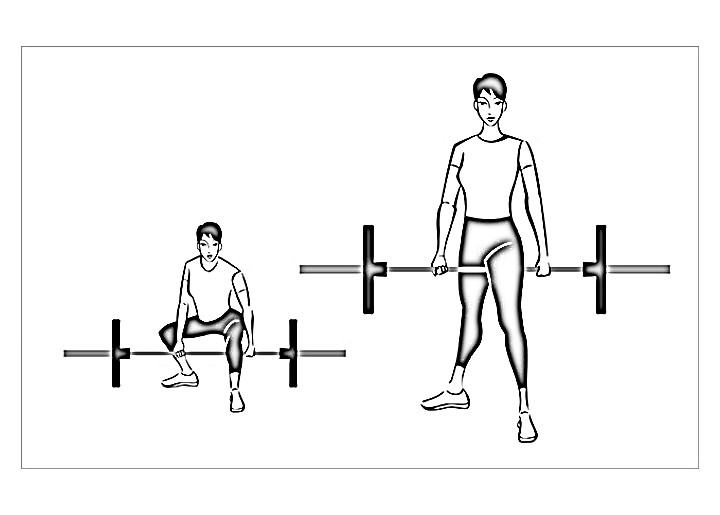
Ginger tea is a popular beverage that has been enjoyed for centuries for its spicy and refreshing flavor. But did you know that ginger tea also has many health benefits? In this article, we will explore 10 powerful health benefits of ginger tea, potential side effects and recipes that you can try at home.
What is Ginger Tea?
Ginger tea is a herbal infusion made from fresh or dried ginger root. Ginger is a rhizome, which means it is a stem that grows underground and produces roots and shoots. Ginger belongs to the same family as turmeric and cardamom, and has been used as a spice and a medicine for thousands of years.
Ginger tea can be prepared by boiling ginger slices in water, or by steeping ginger powder or tea bags in hot water. You can also add other ingredients to enhance the flavor and health benefits of ginger tea, such as lemon, honey, mint, cinnamon or cloves.
Don’t Miss:
- 7 Transformative Benefits of Ginger Oil for Skin
- 8 Powerful Benefits of Ginger for Sore Throat and How to Use It
- 7 Transformative Benefits of Ginger Oil for Hair
Ginger Tea Health Benefits

Ginger tea has many health benefits, thanks to its active compounds such as gingerol, shogaol and zingerone. These compounds have anti-inflammatory, antioxidant, antibacterial and antiviral properties that can help prevent and treat various conditions. Here are 10 powerful health benefits of ginger tea:
Benefit 1. Ginger tea may help relieve nausea and vomiting
Ginger tea is a traditional remedy for motion sickness, morning sickness, chemotherapy-induced nausea, and post-surgery nausea. According to some studies, one of the benefits of ginger tea is that it can help calm the stomach and reduce the urge to vomit. Ginger tea may work by blocking a brain receptor that triggers vomiting .
Benefit 2. Ginger tea may help ease menstrual cramps and pain
another benefits of Ginger tea is that it may have pain-relieving effects, especially for menstrual cramps. Some research suggests that ginger tea can reduce the severity and duration of menstrual pain, as well as improve mood and physical symptoms. Ginger tea may act as a natural anti-inflammatory agent that inhibits the production of prostaglandins, which are hormone-like substances that cause inflammation and pain .
Benefit 3. Ginger tea may help lower blood pressure and improve heart health
Ginger tea may have beneficial effects on blood pressure and heart health. Some studies have shown that ginger tea can lower blood pressure, improve blood flow, prevent blood clots, and lower cholesterol levels . Ginger tea may also protect against oxidative stress and inflammation, which are risk factors for cardiovascular disease .
Benefit 4. Ginger tea may help support weight loss and blood sugar control
Ginger tea may also help with weight loss and blood sugar control. Some studies have found that ginger tea can increase thermogenesis, which is the process of burning calories for heat, and enhance fat oxidation, which is the breakdown of fat for energy. Ginger tea may also improve insulin sensitivity, which is the ability of cells to respond to insulin and take up glucose from the blood.
Benefit 5. Ginger tea may help fight infections and boost immunity
Ginger tea may also help fight infections and boost immunity. Ginger tea has antimicrobial, antiviral, and antifungal properties that can inhibit the growth of harmful bacteria, viruses, and fungi. Ginger tea may also stimulate the production of immune cells and antibodies that can fight off pathogens .
Benefit 6. Ginger tea may help reduce inflammation and arthritis symptoms
Ginger tea may also help reduce inflammation and arthritis symptoms. Ginger tea contains gingerols and shogaols, which are compounds that have anti-inflammatory effects. These compounds can block the activation of inflammatory pathways and reduce the production of inflammatory cytokines. Ginger tea may also provide benefits that suppress the activity of enzymes that degrade cartilage, which is the tissue that cushions the joints.
Benefit 7. Ginger tea may help protect against cancer
Ginger tea may also help protect against cancer. Ginger tea has anticancer properties that can modulate the expression of genes involved in cell growth, death, invasion, and metastasis . Ginger tea may also induce apoptosis, which is the programmed cell death of cancer cells, and inhibit angiogenesis, which is the formation of new blood vessels that feed tumors .
Benefit 8. Ginger tea may help improve brain function and prevent neurodegenerative diseases
Ginger tea may also help improve brain function and prevent neurodegenerative diseases. Ginger tea has neuroprotective effects that can enhance memory, learning, attention, and cognition. Ginger tea may also prevent or delay the onset of Alzheimer’s disease and Parkinson’s disease by reducing oxidative stress, inflammation, amyloid plaques, and neuronal loss in the brain .
Benefit 9. Ginger tea may help relieve respiratory problems
Ginger tea may also help relieve respiratory problems. Ginger tea has expectorant effects that can loosen mucus and phlegm from the lungs and throat . Ginger tea may also soothe coughs, sore throats, asthma, bronchitis, and sinusitis by reducing inflammation and irritation in the respiratory tract .
Benefit 10. Ginger tea may help promote digestion and prevent gastrointestinal disorders
Ginger tea may also help promote digestion and prevent gastrointestinal disorders. Ginger tea can stimulate saliva, bile, and gastric juice secretion, which can facilitate digestion and absorption of nutrients [^28^. Ginger tea can also relax the muscles of the gastrointestinal tract, which can prevent or relieve spasms, cramps, bloating, gas, constipation, diarrhea, indigestion, dyspepsia, gastritis, ulcers, irritable bowel syndrome (IBS), inflammatory bowel disease (IBD), and gastroesophageal reflux disease (GERD) .
It’s important to note this are not all the potential health benefits of ginger tea and that while ginger tea offers numerous health benefits, individual results may vary. It’s always recommended to consult with a healthcare professional before making any significant changes to your diet or lifestyle, especially if you have any underlying health conditions.
Potential Side Effects of Ginger Tea
While ginger tea offers numerous health benefits, it’s essential to be aware of potential side effects, especially when consumed in excessive quantities. Here are a few considerations:
- Heartburn or acid reflux. Ginger tea may cause heartburn or acid reflux in some people who are sensitive to spicy foods or have a history of gastroesophageal reflux disease (GERD). To avoid this side effect, drink ginger tea in moderation, avoid drinking it on an empty stomach or before bedtime, or add some milk or honey to neutralize the acidity.
- Allergic reaction or skin rash. Ginger tea may cause an allergic reaction or skin rash in some people who are allergic to ginger or other members of the same plant family. To avoid this side effect, consult your doctor before drinking ginger tea if you have a known allergy, or stop drinking it if you experience any symptoms such as itching, swelling, hives or difficulty breathing.
- Bleeding or bruising. Ginger tea may increase the risk of bleeding or bruising in some people who have a bleeding disorder, take blood thinners, or have a surgery scheduled. To avoid this side effect, consult your doctor before drinking ginger tea if you have any of these conditions, or stop drinking it at least two weeks before a surgery.
- Low blood sugar or blood pressure. Ginger tea may lower blood sugar or blood pressure in some people who have diabetes, hypoglycemia, hypertension, or take medication for these conditions. To avoid this side effect, consult your doctor before drinking ginger tea if you have any of these conditions, or monitor your blood sugar or blood pressure levels regularly.
- Drug interactions. Ginger tea may interact with some drugs that affect the blood, stomach, liver, kidneys, heart or brain. To avoid this side effect, consult your doctor before drinking ginger tea if you take any prescription or over-the-counter drugs, or herbal supplements.
Recipes for Ginger Tea

Ginger tea can be easily made at home with fresh or dried ginger root, or ginger powder or tea bags. Here are some simple recipes for ginger tea that you can try and reap it many health benefits:
- Basic ginger tea. Peel and slice a 2-inch piece of fresh ginger root and add it to 4 cups of water in a saucepan. Bring the water to a boil and then lower the heat and simmer for 15 to 20 minutes. Strain the tea and enjoy it hot or cold. You can also add some lemon juice, honey, mint, cinnamon or cloves to enhance the flavor and health benefits of ginger tea.
- Ginger lemon honey tea. Peel and slice a 2-inch piece of fresh ginger root and add it to 4 cups of water in a saucepan. Bring the water to a boil and then lower the heat and simmer for 15 to 20 minutes. Strain the tea and add the juice of one lemon and two tablespoons of honey. Stir well and enjoy it hot or cold.
- Ginger turmeric tea. Peel and slice a 2-inch piece of fresh ginger root and a 1-inch piece of fresh turmeric root and add them to 4 cups of water in a saucepan. Bring the water to a boil and then lower the heat and simmer for 15 to 20 minutes. Strain the tea and add some black pepper and coconut milk. Stir well and enjoy it hot or cold.
- Ginger green tea. Peel and slice a 1-inch piece of fresh ginger root and add it to 4 cups of water in a saucepan. Bring the water to a boil and then lower the heat and simmer for 10 minutes. Turn off the heat and add two green tea bags. Steep for 5 minutes and then remove the tea bags. Strain the tea and enjoy it hot or cold.
- Ginger chai tea. Peel and slice a 2-inch piece of fresh ginger root and add it to 4 cups of water in a saucepan along with two cinnamon sticks, four cardamom pods, four cloves and two black peppercorns. Bring the water to a boil and then lower the heat and simmer for 15 to 20 minutes. Add two black tea bags and one cup of milk. Steep for 5 minutes and then remove the tea bags. Strain the tea and add some sugar or honey to taste. Enjoy it hot or cold.
Conclusion
Ginger tea is a delicious and healthy beverage that can offer many benefits for your body and mind. Ginger tea can help relieve nausea, improve digestion, boost immunity, reduce inflammation, lower blood pressure, improve brain function, prevent cancer, promote weight loss, detoxify the body and beautify the skin and hair.
However, ginger tea may also cause some side effects in some people who are sensitive or allergic to ginger, have certain medical conditions or take certain drugs. Therefore, it is advisable to consult your doctor before drinking ginger tea regularly.
You can make ginger tea at home with fresh or dried ginger root, or ginger powder or tea bags. You can also add other ingredients such as lemon, honey, mint, cinnamon, cloves, turmeric, green tea or black tea to enhance the flavor and health benefits of ginger tea.
Frequently Asked Questions On Ginger Tea Health Benefits
1. Can ginger tea help with weight loss?
Yes, ginger tea can be beneficial for weight loss. Its thermogenic properties help boost metabolism, promote fat burning, and suppress appetite. However, it is important to incorporate ginger tea into a healthy diet and exercise routine for optimal results.
2. Are there any potential side effects of consuming ginger tea?
While ginger tea is generally safe, some individuals may experience mild digestive discomfort, increased bleeding risk (especially for those on blood-thinning medications), or allergic reactions. It is advisable to start with small quantities and consult with a healthcare professional if you have any concerns or underlying health conditions.
3. Can ginger tea be consumed during pregnancy?
Pregnant women should consult with their healthcare provider before consuming ginger tea, as it may have potential effects on pregnancy. While ginger tea is often used to alleviate nausea and morning sickness, it is important to ensure it is safe for individual circumstances.
4. How often should ginger tea be consumed to reap its health benefits?
There is no one-size-fits-all answer to this question, as it depends on individual preferences and health conditions. However, drinking ginger tea 2-3 times a day or as needed is a common recommendation. It is always advisable to listen to your body and consult with a healthcare professional for personalized guidance.
5. Can ginger tea interact with medications?
Ginger tea may interact with certain medications, including anticoagulants, diabetes medications, and blood pressure medications. If you are taking any medications, it is important to consult with your healthcare provider before incorporating ginger tea into your routine to ensure there are no potential interactions.
We hope you enjoyed this article on 10 powerful health benefits of ginger tea, potential side effects and recipes. If you did, please share it with your friends and family who might also benefit from drinking ginger tea.
Disclaimer: The information provided in this article is for educational purposes only and should not be considered as medical advice. Consult with a healthcare professional before making any changes to your diet or lifestyle.
Related Posts
Learn more:
- 7 Expert-Backed Health Benefits Of Ginger Tea – Forbes
- Ginger Tea Benefits: Nausea, Pain Relief, and Blood Sugar
- 11 Health Benefits of Ginger: Effect on Nausea, the Brain & More
- Fresh Ginger Tea Recipe – Cookie and Kate
- How to Make Fresh Ginger Tea – Minimalist Baker Recipes
- Ginger Root Tea Recipe
- Is It Good to Drink Ginger Tea Every Day? Benefits, Side Effects
- Ginger Tea: Does It Have Any Bad Side Effects?
- Ginger tea side effects: What are the risks and benefits?

































